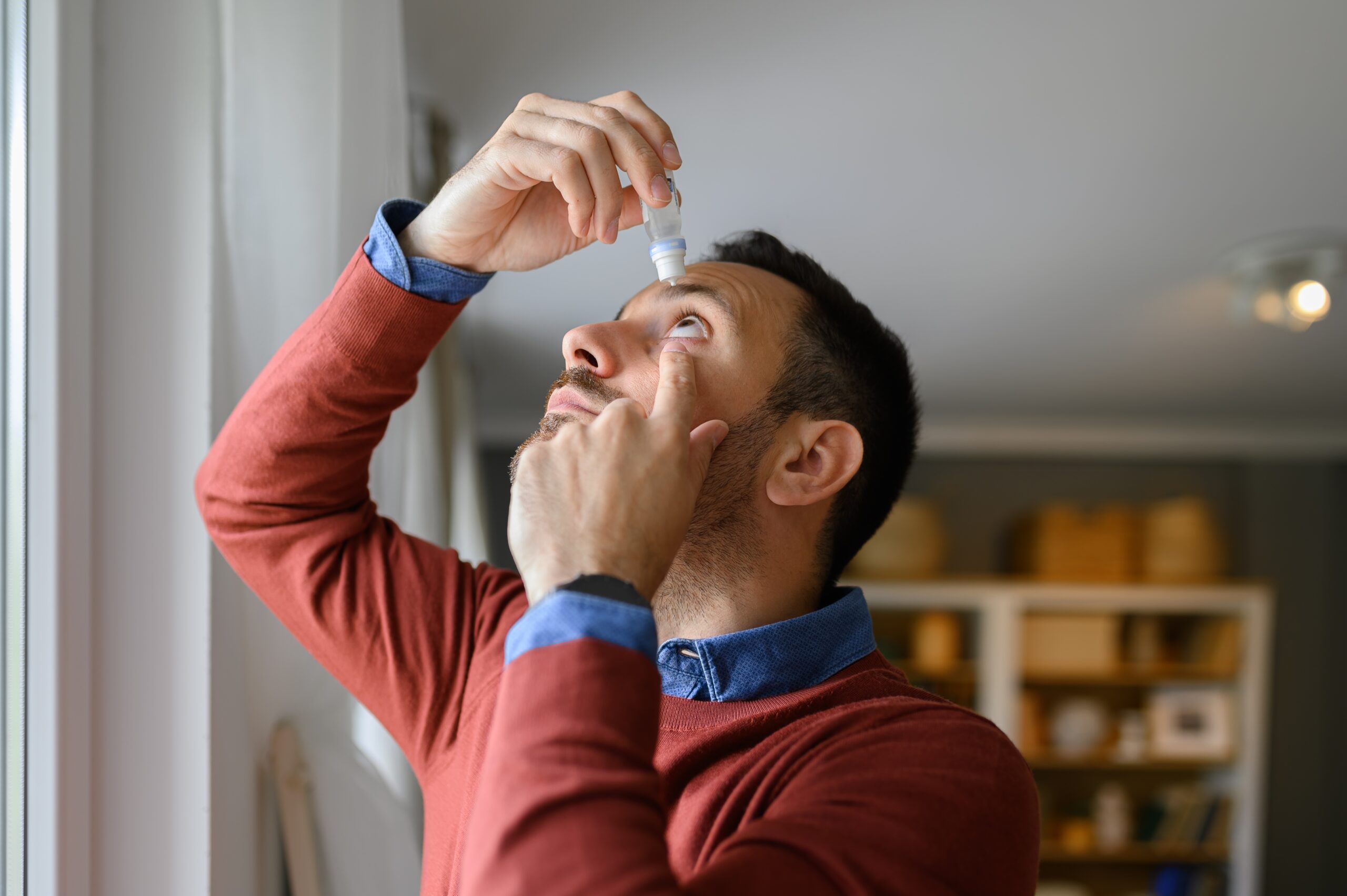
Do your eyes frequently feel irritated, dry, or uncomfortable? Do they sometimes burn, sting, or feel gritty and painful?
These could all be signs you’re experiencing dry eye syndrome. Millions of people across the world have this eye condition, which occurs when the eyes don’t make enough tears or the tears evaporate too quickly.
If left untreated, dry eye can cause annoying ongoing symptoms and even permanent damage over time. The good news is that with proper diagnosis and management from an eye doctor, keeping dry eye under control is very possible.
Keep reading to learn more about dry eye syndrome, including why treatment is important!
What is Dry Eye Syndrome?
Dry eye syndrome, also known as dry eye disease, occurs when the eyes cannot sufficiently produce and maintain tears. When you blink, a tear film forms to coat the surface of the eye, keeping it moist and protected.
Dry eye syndrome means that there is either too little tear production or the tears evaporate too quickly to keep the eyes sufficiently moist and comfortable. There are a number of potential risk factors that can increase susceptibility to dry eye, including aging, wearing contact lenses, certain health conditions, and certain medications.
While dry eyes can be more prevalent as you get older, it can happen at any age.
What Are the Most Common Symptoms of Dry Eye Syndrome?
Common symptoms of dry eye include persistent stinging, scratchiness, burning, irritation, and grittiness in the eyes that can fluctuate but tend to persist through the day.
Dry eye can also make vision blurry and make bright lights and screens more glaring and painful to look at. Sensitivity to wind and air conditioning are also common complaints.
Some people with dry eye may experience watery eyes since irritation brings in reflex tears, but these reflex tears are insufficient to actually moisturize the eye surface and prevent discomfort.
Redness, swelling, and feeling like something is in your eye are other potential symptoms.
How Do I Know If I Have Dry Eye Syndrome?
Do you experience multiple dry eye symptoms without relief over a prolonged period of time? While occasional irritation or dryness is common, persistent symptoms that impact your comfort and vision daily may indicate you have dry eye syndrome.
The best way to find out for sure is to visit your eye doctor at Metro Eye Care for an appointment. They can perform comprehensive tests to examine the quality and quantity of your tears to definitively diagnose dry eye disease.
This helps determine the severity of dryness impacting your eyes. Your eye doctor can also rule out any other potential eye issues with similar symptoms, like allergies, inflammation, or eye infections.
Does Dry Eye Always Need to be Treated?
While mild cases may have minimal impact, moderate to severe dry eye should be treated in most cases to prevent damage and provide relief. Ignoring symptoms allows irritation and inflammation to get progressively worse over time.
This can increase the risk of secondary eye infections, ulcers on the cornea, and permanent vision impairment in extreme untreated cases. The good news is keeping dry eye under control is usually achievable with a proactive treatment plan.
Typical treatments include:
- Daily lubricating eye drops
- Ointments
- Environment/lifestyle changes
- Prescription anti-inflammatory medication
Your eye doctor at Metro Eye Care can create a tailored treatment plan based on your symptoms and exam findings. Staying on top of treatment helps control discomfort and preserve vision.
Are you experiencing symptoms of dry eye? Schedule an appointment at Metro Eye Care in Paramus, NJ, today!
